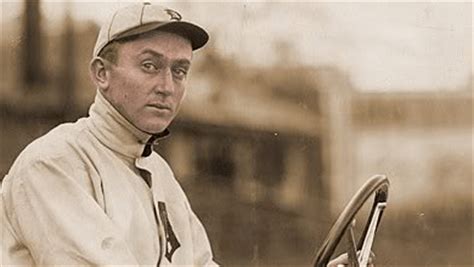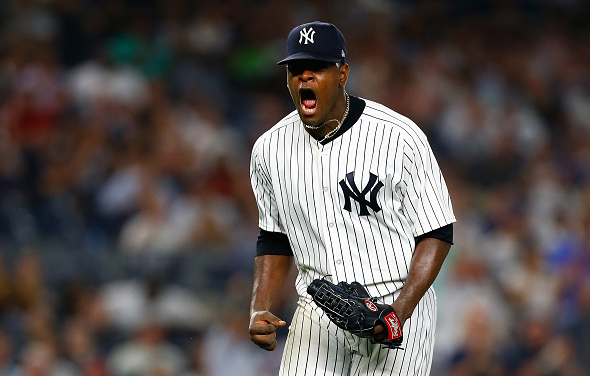2019 marked the 150th anniversary of Major League Baseball with the sport providing enough drama and attention to be “America’s Pastime.” Unfortunately, not all of the theater has been similar to Babe’s “called shot” or the Willie Mays over the shoulder catch. Some is funny (the 1973 Yankees’ wife swapping scandal), and others severely damaged the integrity of the game. The Astros and Red Sox represent the latter, creating a dark day for baseball regardless of your favorite team. Whenever two World Series championships come into question, it is a car wreck of a scandal.
However, where does 2017-2019 compare in the history of the sport? I decided to look through the history of the game and pick out a few. I mostly ignored personal scandals, but some were too important to overlook (looking at you Pete Rose). Most damaged the integrity of the game, and others changed it for better or worse. I went in historical order, but feel free to rank them or point out any I may have forgotten.
Louisville Grays
The first of the many MLB gambling scandals was the 1877 Louisville Grays. Holding a four-game lead near the end of the season, they closed out the last 20 games to fall seven games back of Boston. John A. Haldeman of the Louisville Courier-Journal would discover the scandal resulting in Al Nichols, George Hall, Bill Craver, and Jim Devlin banned for life. A few years later, Dick Higham would become the only umpire ever to be banned for life in another gambling incident.
“Sullied” Sox Scandal
The 1919 World Series is one of the most famous of all baseball scandals. After several similar incidents such as Connie Mack believing that his Philadelphia A’s purposely lost the 1914 series because they did not like him, the game’s integrity was taking a huge hit. Similar to the current events, MLB had a good idea of what was going on but turned their heads.
In 1919, allegations surfaced against eight members of the Black Sox for throwing the series to the Reds. Sensing the Black Sox nightmare scenario with the fans, the league responded by hiring the league’s first commissioner, Federal Judge Kenneshaw Mountain Landis. Courts would later acquit seven members of the team. Landis banned them for life, however, including “Shoeless” Joe Jackson, who hit .375 and had no errors in the World Series. As recent as 2015, the Jackson Museum asked Rob Manfred to reinstate Jackson, but he denied the petition.
Ty Cobb, Ty Cobb, Ty Cobb…and Tris Speaker
Cobb was a veritable scandal machine. In 1912, he ran into the stands and thrashed a fan, who only had two fingers, after a heckling incident. It resulted in an indefinite suspension and his teammates going on strike for a game. He would later punch an elevator operator who was fresh with him and go on to stab a security guard who jumped in to help. He would also be involved in the “Dutch Leonard Affair” along with Tris Speaker. They allegedly had insider information that a game was fixed, and the two placed bets on it. It resulted in a lifetime ban, but they were found not guilty in court and later allowed back into the league.
1957 All-Star Game
It’s not exactly a game-changing scandal as it is only an exhibition game, but it did change the process for choosing All-Stars until 1970. The Cincinnati Redlegs fans worked to stuff the ballot box with the help of local newspapers, radio, etc. Local bars even refused service until patrons filled out a ballot. The result was half of all votes came from Cincinnati, and seven members of the team were elected to represent Cincinnati with Stan Musial being the only non-Redleg position player to start. Commissioner Ford Frick would overrule the fans and replace two with Willie Mays and Hank Aaron.
The “Gambling” King
If any other player ever approaches the 4,000 hit mark, they may want to stop at 3,999. MLB has only two players to do it, and both were troubled by suspensions and bans. Rose’s is likely the most famous as many of us still remember it or have parents and grandparents who can share story after story about his hitting exploits. With a history of enjoying a bet or two, allegations of Rose betting on baseball as Reds manager came to light. John Dowd, on order from Commissioner Bart Giamatti, investigated the accusations over several months and found that Rose bet on baseball games. Rose had denied his gambling problem, betting on baseball, and betting on his team’s games, only changing his stories after defense became untenable. Giamatti banned him from the game, making him ineligible for Hall of Fame induction. He has since requested reinstatement, but MLB continues to deny his petitions. Many fans find the lifetime ban an injustice to no avail.
Collusion
In 1985 the owners were complaining about contracts given to free agents, as has been happening since the advent of free agency. The owners created an unspoken agreement not to sign other teams’ free agents. In that off-season, only four players would change teams. In 1986, high-end players such as Ron Guidry, Tim Raines, and Jack Morris were not getting offers. The MLBPA would file grievances in three separate seasons, with the arbitrators finding in their favor in each. Many believe that it later led to MLB expansion and the 1994 players’ strike.
A “Buc”ket of Drugs
The cast of characters is eclectic, long, and the beginning of a good joke. A caterer, a parrot, and a photographer walk into a clubhouse….
The team caterer for the Pittsburgh Pirates would provide the drugs, and the mascot and photographer would sell drugs among the players and throughout the organization. The parrot would eventually turn state’s evidence and break up the ring. All players were given immunity from prosecution as they would testify as well, but suspensions were looming, as baseball would still have its say.
The most salacious detail was Tim Raines admitting that he kept cocaine in his back pocket and would slide headfirst to prevent breaking the vial. Seven players received a one year ban, including Dave Parker, Yogi Berra’s son Dale, and Keith Hernandez, and others 60 days. All were allowed to continue to play if they completed community service and made donations to drug treatment programs.
By(e) George!
The “Big Stein” is loved in the Yankees Universe, but he had more than his share of troubles, serving two suspensions. He was first suspended for two years, later reduced to 15 months, after pleading guilty to charges of making illegal contributions to Richard Nixon and two counts of conspiracy. Unfortunately, that was just a warm-up for bigger things.
After signing the great Dave Winfield for a record-setting $23 million contract over 10 years, the relationship soured quickly. George would dub Winfield “Mr. May,” a play on Reggie’s “Mr. October,” and wanted to trade him. Winfield would sue George for not making a charitable donation as required in Winfield’s contract, and it continued to snowball. George would hire a degenerate gambler for $40,000 to find dirt on Winfield. Fay Vincent would ban Steinbrenner for life before lifting it after two years.
Biogenesis
Steroids. The one we all know. Many wrote books on the topic, so I’ll use one specific incident as a stand-in.
In 2013, most believed the steroid scandal to be mostly over for baseball. It wasn’t to be. An anti-aging business called Biogenesis was providing steroids to MLB players — found out after an angry employee released records to the Miami New Times. These records contained the names of several players receiving PEDs. The owner of the company, Anthony Bosch, would later cooperate with MLB, and the information would result in 12 players receiving 50 game bans. Ryan Braun would be suspended for 65 games and Alex Rodriguez 211 games because he tried to cover up his ties to the company.
The Cardinals Are Hacks
This one is probably the first use of modern technology to cheat. The FBI would investigate the St. Louis Cardinals for computer hacking. It turned out that the Cardinals’ scouting director, Chris Correa, was accessing the Astros’ computer database over two years, using credentials of Astro’s GM Jeff Luhnow and minor league players. He accessed mostly scouting reports. The league forced the Cardinals to give their two highest draft picks to the Astros and fined the team $2 million. Courts would then sentence Correa to 48 months for corporate espionage.
A Brave Move
In an attempt to level the playing field, MLB limits the amount of money teams can use for signing bonuses given to international players. The Braves circumvented this by giving prospects money beyond these bonuses. Punishments included the release of 12 prospects who would become free agents, the banishment of GM John Coppolella for life, scout Gordon Blakely suspended for one year, and the president of baseball operations, Jon Hart, resigned. International bonus pool money was also limited to $10,000 for the 2019-2020 signing period.
That’s a long list but certainly not exhaustive. Did I miss any? Let us know what you think! How do the Astros and Sox compare?




